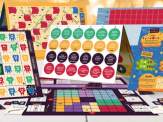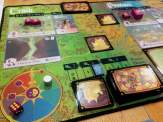There are many things that affect our mental health in some way. It could be a life-changing or otherwise significant event. It could be certain habits we have or things we do – or don’t do. Our physical health can also affect it, as well as the health of someone close to us. Our relationships also have an influence on our mental health. These are all very broad stroke headlines and there are many things that fit into each of those categories. Of course, different events affect each of us differently – in different ways and at different times. Ultimately, it’s about how we deal with these events that decide how they affect our mental health.
Let me start by saying that I have no medical training whatsoever, so I can’t give you any medical advice. All I can say is that you should look for help if you are worried for yourself or a loved one. There are many places that can offer advice and answer your questions and help you with mental health issues.
With that out of the way, I want to look at how distraction can help to some degree with mental health, in particular anxiety and depression – at least in a small way and even if it’s only for a short while. So to be clear, I’m not saying that distractions will solve your mental health problems, and I do understand that it’s not a simple matter of smiling or keeping positive to make your anxiety and depression go away. Yet, being able to spend some time thinking about something else is useful and may help you for a while.
Of course, I want to look specifically at how tabletop games, of whatever ilk, are able to create that distraction. I certainly find that for myself and I think most of us feel similarly, whether we’re dealing with mental health issues or not.
Tabletop games have become a form of escapism, just like books, films or music are. Many games allow you to escape into another world and take on a different persona. I’m not even just thinking about role-playing games, or RPGs. A lot of games have a really rich theme that allows your mind to wander and go off into another world, which is a million miles away from your worries and day-to-day thoughts. Games with asymmetric player powers also force you to immerse yourself in whatever faction or character you take on. It allows you to pretend to be someone else for a while.
In fact, if you have the capacity to focus on something else and want to occupy your brain, then heavier games that require a clever strategy, good tactics or some other sort of planning and thinking many turns ahead, will be for you. Again, there is a wide range of games that will make your brain work hard, forcing you to stop thinking about the things that are going on in your life.

Get yourself a wooden Tabletop Games Blog dice tray.
Each tray is the perfect size to roll your dice, and with the soft mat, it’s really quiet, while the wooden frame makes it wonderfully sturdy.
However, that’s not always possible of course. Depending on your mental state, you may be too tired or your brain is just too exhausted to expend much energy. That’s when lighter games are worth looking at. It doesn’t matter whether it’s the game is mostly rolling a few dice, placing tiles or some other similar mechanism, as long as there isn’t any need to plan ahead or think too much. It can still create enough of a distraction to help you improve your mental health for a little while.
The social aspect of games can also help with your mental health, if loneliness is a factor. Spending time with other people can be good for you. You can choose between co-operative and competitive games, depending on whether you want to experience everyone pulling together to achieve a common goal or prefer to pit your wits against the other players. In fact, there are varying levels of co-operative and competitive that you should be able to find something suitable for your current situation and mood.
Of course, at the moment the only people who you could play a game with face-to-face, are those who live in your household. People who suffer from loneliness are probably already living alone. However, there are ways to play with others online. Have a look at the “Useful Links” page on my blog, which lists some of those online sites that are free to join and offer a wide range of games to play. You can then use software such as Skype, Discord or others, many of which are also free, to be able to speak to the people you play with. It’s not the same as face-to-face contact, but it is a really good option at the moment.
Yet, there are times when you might prefer not to be around other people, but still distract yourself with a game. Luckily, many games can be played solo these days. These games aren’t solo variants, but give you the full experience of the game, just as if you were playing with other people. So you do have a large number of games to choose from that you can play by yourself, but also with others, depending on how you feel at the time.
I do think it’s amazing how much variety tabletop games offer and how they can help us with our mental health – at least to some degree. If you have had great experiences with tabletop games and how they helped with your mental health, then please post them in the comments below. Maybe you have some favourite games that you can recommend others who struggle with mental health. I’d love to hear from you.
0 Comments
What are you thoughts?
Add your thoughts on the topic to the form below and join the conversation.
Audio Version
Intro Music: Bomber (Sting) by Riot (https://www.
Music: Uluru by Purple Planet Music (https://www.
Links
- Useful Links: https://tabletopgamesblog.
com/ links/






“Let me start by saying that I have no medical training whatsoever, so I can’t give you any medical advice.”
Take two dice and call me in the morning.
That’s not bad advice, well don’t take them to swallow them, take them to play with them. Think of all the money that’s changed hands with CRAPS—just two dice.
And there are great 2d6 dice engines out there for games, both solo and multiplayer.
But I digress—kind of.
Those two dice can unleash the imagination. and when the imagination is unleashed, loneliness can fade away.
I’d argue that—yes games can be a distraction but—they’re also an immersion.
An immersion into your imagination is different than a distraction, in my opinion. An immersion can be constructive—filling our soul and mind with creativity. A distraction tends to be a temporary thing, without much betterment than before the distraction.
Just my random Canadian 2 cents . . . =)
Thank you for your thoughts, David, as always. Yes, I guess games can be an immersion – and it’s great when you can really immerse yourself in a game. It’s definitely a form of escapism, but it’s not necessarily making things better permanently unfortunately. However, when games do help make a permanent improvement in someone’s life, it’s amazing.